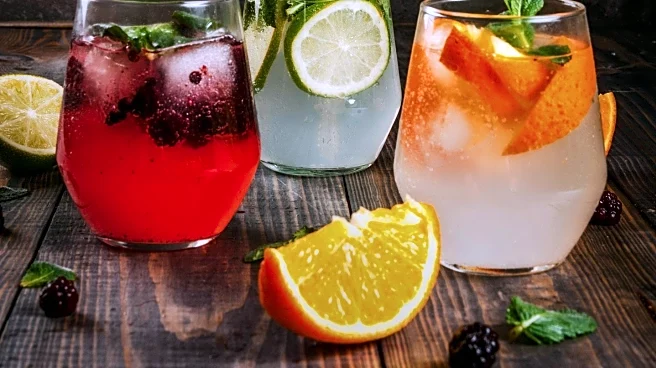What's Happening?
Several U.S. states continue to enforce bans on happy hours, a popular tradition for many workers seeking affordable drinks after work. These bans, originating primarily in the 1980s, were implemented as a measure to combat drunk driving. Massachusetts was among the first to enact such a ban following a tragic drunk-driving incident in 1984. Other states with similar prohibitions include Alaska, Rhode Island, Utah, Vermont, North Carolina, and Oklahoma. These states have varying restrictions, such as prohibiting free or discounted drinks and limiting drink specials to all-day offers rather than specific hours. Critics argue that these bans negatively impact social interactions and networking opportunities in professional environments.
Why It's Important?
The bans on happy hours reflect ongoing efforts to reduce drunk driving incidents, which remain a significant public safety concern. While these measures aim to curb excessive alcohol consumption, they also affect the social dynamics within workplaces, potentially limiting opportunities for informal networking and mentorship. The restrictions can impact the hospitality industry, particularly bars and restaurants, by reducing customer traffic during traditional happy hour times. This can be especially challenging for businesses still recovering from the economic impacts of the pandemic.
What's Next?
Debate continues over the effectiveness of happy hour bans in preventing drunk driving. Some lawmakers and industry experts advocate for revisiting these laws to balance public safety with economic and social benefits. Discussions may focus on alternative strategies, such as enhanced education and enforcement, to address drunk driving without imposing blanket bans on drink specials.
Beyond the Headlines
The bans highlight broader cultural and legal challenges in addressing alcohol-related issues. They raise questions about personal responsibility, the role of government in regulating social behaviors, and the effectiveness of punitive measures versus educational approaches. As societal attitudes towards alcohol consumption evolve, these bans may face increased scrutiny and calls for reform.









